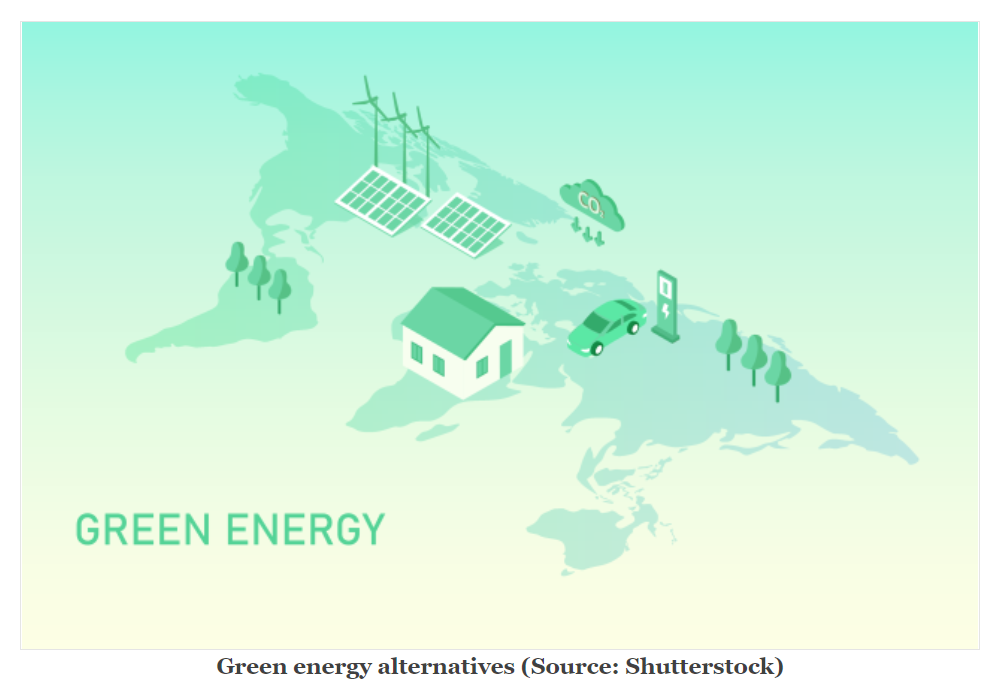One of the largest sustainability initiatives in the world is the push toward widespread adoption of electric vehicles (EVs). While there are still those who question the sustainability of EVs, they undoubtedly mark a positive change in the world.
EV adoption is currently increasing in the United States for several reasons—EV’s not only utilize energy more efficiently, but they produce a much lower carbon footprint compared to traditional internal combustion engine vehicles (ICEV). According to Experian, battery EVs doubled their market share in the U.S. during the first six months of 2022.
A more efficient use of energy
Though most of the electricity for EVs may come from fossil fuels, many people overlook the fact that EVs still represent a more efficient use of this energy than the alternative.
A standard power plant on the grid is significantly more efficient than a gasoline engine in a car. Natural-gas-fueled power plants can reach efficiencies as high as 60%, while the efficiency of an internal combustion engine in a vehicle can be as low as 20%, according to the National Academy of Sciences and the Environmental Protection Agency (EPA). Therefore, EVs make much more efficient use of fossil fuels by displacing the energy conversion from inside a gasoline engine to a more efficient power plant.
The U.S. electrical grid receives about 40% of its energy from renewable sources, according to the U.S. Energy Information Administration (EIA). Forty percent of the electricity used by EVs is clean, compared to 0% of the energy from gasoline—a number which will never get any higher.
All things considered, by switching from an ICEV to an EV, a driver can expect to reduce their carbon footprint from driving by 60% to 70%—even without being powered by clean, renewable electricity. Obviously, a customer whose electric car is completely powered by clean electricity would reduce their carbon footprint from driving by 100%.

Reducing and displacing air pollutants
Beyond the efficiency benefits of eco-friendly EVs compared to ICEVs, EVs offer additional advantages in terms of improved air quality and public health.
The six “criteria”, or common, air pollutants that can negatively impact human health are particulate matter, ground-level ozone, carbon monoxide, sulfur dioxide, nitrogen dioxide, and lead, according to the EPA. All these pollutants are produced by burning of fossil fuels, both in internal combustion engines and at power plants. EVs can make an impact here by changing where these fossil fuels are burned.
With ICEVs, these criteria air pollutants are generated and emitted into the air in high concentrations and, more importantly, in locations and at times that are more likely to harm people. Consider the fact that the highest concentration of pollution-emitting vehicles will correlate directly to areas with the highest concentration of people—be it a crowded city street or residential area. Here, ICEVs are directly affecting public health, releasing the criteria air pollutants exactly where and when we don’t want them.
By using EVs, which don’t emit air pollutants, we benefit by transferring these emissions away from the vehicle and to the power plant. The important point here is that power plants generally do not operate in highly concentrated residential areas, but instead normally operate in more remote locations and utilize emission-control technology. Unlike gasoline engines, power plants have the potential to be zero emission.
In this way, the adoption of EVs significantly keeps toxic pollutants away from large concentrations of people, ensuring greater public safety and health.
The fossil fuel supply chain
Some may argue that the supply chains involved to produce EVs, and particularly their batteries, are not sustainable. It’s important to acknowledge, however, the impact of the existing supply chains for ICEVs and their fuel.
These existing supply chains come with several environmental hazards: To produce the gasoline that we use to fuel our cars, we must explore for the crude oil, produce it, physically transport it, refine it, and then distribute it as gasoline. Throughout this entire process, we are consuming an enormous amount of energy just to get the fuel to our cars where they create even more waste.
If we stopped turning crude oil into refined gasoline, we would be able to cut out unnecessary energy expenditure. Instead, we could utilize that energy to power our EVs, homes, and infrastructure. Even further, eradicating the gasoline supply chain would have the additional environmental benefit of eliminating unnecessary environmental hazards associated with gasoline production, such as oil spills.
An evolving process for eco-friendly EVs
When it comes to evaluating the environmental impact of EVs, we must keep in mind that we cannot expect the transition to EVs to be perfect. They are, like any other innovation, constantly evolving and will become ever more sustainable.
At the end of the day, EVs represent a massive improvement to our environment through efficient energy use, reduction of air pollutants, and a more sustainable supply chain. By combining these improvements with increased awareness, education, policy change, and resources, our society can continue to reduce our carbon footprint and protect our planet.
Article Credits: EE Times
